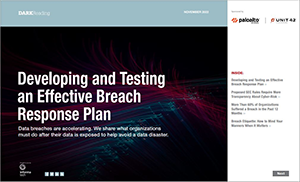 SOC Turns to Homegrown Machine Learning to Catch Cyber Intruders
SOC Turns to Homegrown Machine Learning to Catch Cyber Intruders A do-it-yourself machine learning system helped a French bank detect three types of exfiltration attacks missed by current rules-based systems, attendees will learn at Black Hat Europe.














